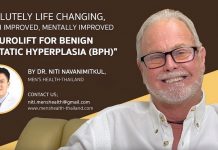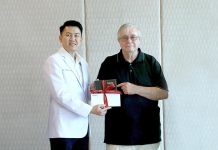Last week I wrote about arthritis, and in particular osteo-arthritis, the wear and tear type of joint degeneration. For these sufferers, surgery is the treatment of last resort. Since around 90 percent of patients, show lessening of pain, improvement in functional status and overall quality of life, I think we should be looking at operation sooner, rather than later. In particular, with minimally invasive surgery which can now be done at the better centers, that means the recovery time after a knee replacement, for example, is very much reduced.
Arthritis is a widespread problem. Another letter went, and I quote, “Dear Dr Corness, I am especially interested in your thoughts about knee joints. In 1994 (I was 49 years old) I developed pains in my knee joints, which were so severe that even walking up a slight incline was agony. I also developed severe pains in my wrists, so much so that picking up a bunch of keys was agony. My hairdresser told me he had similar problems but now used a tablet containing 1500 mg Glucosamine and 1200 mg of Chondroitin (marine Chondroitin) and had no problems. I started taking this and within two weeks my pains had completely vanished and they only returned once, when I ran out of tablets. I took this supplement until 2001, when I came to Thailand and hoped that the warmer climate here would do the job of the tablets. I have since had no problems. Should you be looking at this supplement as an alternative to injections or surgery?”
This brings up an immediate couple of points that should be examined. The first is, from the description, I am not convinced that he was suffering from ‘osteo’ arthritis, but rather ‘Rheumatoid’ arthritis. This is another form of arthritis and is noted for spontaneously settling and then flaring up again, and many factors seem to be involved with this. In simple terms, look upon rheumatoid arthritis as a form of inflammation in the joint, whilst osteo-arthritis is more of a ‘degeneration’ in the joint.
The other point is that whilst it is undoubtedly possible for all kinds of compounds to affect arthritis (rheumatoid in particular), it is incorrect to then generalize and suggest that this form of medication is good for everyone.
We are now in the era of EBM, otherwise known as Evidence Based Medicine. To prove the efficacy (or otherwise) of prescription drugs or various treatment modalities, it takes more than one sufferer and a hairdresser. Yours is what is called ‘anecdotal’ evidence. True ‘hard’ evidence needs enormous studies, following rigid protocols where the results produced by active substances are compared to those from non-active (placebo) substances.
For example, a research group in Norway began with a literature search from 1966 to April 2004. They crosschecked reference lists in systematic reviews, searched conference abstracts, and talked to clinical experts. The studies included scientific papers in English, German, and Scandinavian.
The trials only included patients with osteo-arthritis of the knee that had been verified by clinical examination according to the American College of Rheumatology criteria and by X-ray. All trials had to be randomised, double blinded (this is where neither the patient or the treating doctor were to know which were the ‘active’ tablets), placebo controlled, and of parallel design. Pain intensity had to be scored on a universal pain scale. The number of patients exceeded 10,000, and only after that could they come up with some ‘hard’ data.
The results of studies like the one above, and others from around the world, would indicate that the first line of treatment for osteo-arthritis is still the simple painkiller paracetamol. A “safe” NSAID (if there is one) can be added for acute flare-ups.
However, I am not saying that non-medical treatment does not work for certain individuals, but I myself do have to follow current medical protocols in my writings. In the meantime, if swallowing chondroitin or glucosamine, green lipped mussels or muttering mantras work for you, then keep doing it! It has also been shown quite categorically, that if the sufferer ‘believes’ in some type of treatment, there are definite advantages from this and good clinical responses that can occur.




